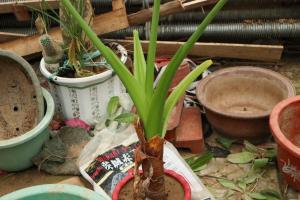How to Add Calcium to Potted Tomato Plants
Potted tomato plants can be a delightful addition to any patio or balcony and provide fresh, juicy tomatoes throughout the growing season. However, tomato plants require specific nutrient requirements, including calcium, to grow strong and healthy.
Why is Calcium Important for Tomato Plants?
Calcium is essential for the overall growth and development of tomato plants. It plays a vital role in strengthening the cell walls of the plant, allowing it to withstand environmental stress, such as fluctuations in temperature, wind, and pests.
Calcium also helps prevent diseases such as blossom-end rot, a common condition among tomato plants, which causes the bottom of the fruit to become brown and mushy.
How to Add Calcium to Your Potted Tomato Plants
1. Use Fertilizers Containing Calcium
One of the easiest ways to add calcium to your potted tomato plants is by using fertilizers enriched with calcium. There are many types of fertilizers on the market that contain calcium, such as tomato-specific fertilizers, bone meal, and gypsum.
When using fertilizer, it is essential to follow the package directions carefully. Over-fertilization can damage plants, leading to reduced growth and production.
2. Add Crushed Eggshells
Eggshells are a natural source of calcium, and adding them to your potting soil is an easy and inexpensive way to provide your tomato plants with this essential nutrient. Simply crush the eggshells and add them to the soil before planting your tomato seedlings.
Alternatively, you can sprinkle the crushed eggshells around the base of the plants. Eggshells will slowly break down over time, allowing the calcium to be absorbed gradually by the plant.
3. Use Calcium Nitrate
Calcium nitrate is a water-soluble fertilizer that is an excellent source of calcium for tomato plants. It can be easily mixed with water and applied to the plant's soil or sprayed onto the leaves.
Calcium nitrate is readily available at most garden centers or online retailers, and it is essential to follow the application instructions carefully to avoid over-fertilization.
4. Incorporate Organic Matter into the Soil
Organic matter, such as compost and well-rotted manure, contains essential nutrients, including calcium. Adding organic matter to your potted tomato plants' soil will improve soil structure, increase water retention, and provide a slow-release source of nutrients, including calcium.
When adding organic matter to the soil, make sure to mix it thoroughly to ensure an even distribution of nutrients throughout the soil.
Conclusion
Calcium is an essential nutrient for the healthy growth and development of potted tomato plants. While there are many ways to add calcium to the soil, it is important to remember to follow the application instructions carefully to avoid over-fertilization.
By incorporating calcium into your potted tomato plant's feeding routine, you will encourage strong, healthy growth, and ensure a bountiful harvest of juicy, delicious tomatoes.

 how many times do yo...
how many times do yo... how many planted tre...
how many planted tre... how many pine trees ...
how many pine trees ... how many pecan trees...
how many pecan trees... how many plants comp...
how many plants comp... how many plants can ...
how many plants can ... how many plants and ...
how many plants and ... how many pepper plan...
how many pepper plan...

































